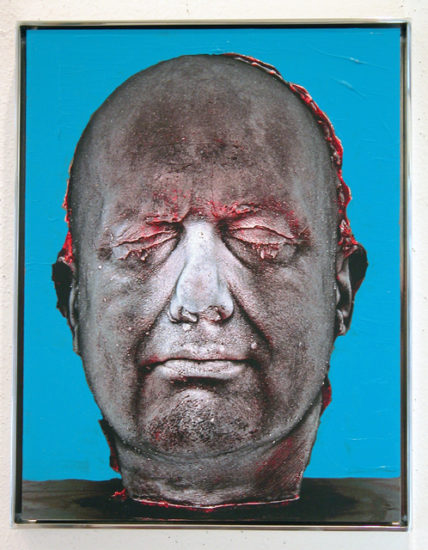Marc Quinn has gained worldwide recognition as an artist obsessed with the apparent preservation of life without the loss of youth, vitality and beauty. Included in many important museum and private collections, his work challenges the passage of time, the inevitability of death and the exquisite beauty found in the cycles of nature. He has shocked the world with such pieces as a sculpture of his head cast in his own blood (titled “Self”) and works made from liquid latex forms resembling flayed skin. His more recent work includes marble sculptures of disabled people done in a classic, heroic style and stunning arrangements of cut flowers preserved indefinitely in giant tanks of frozen silicone; monuments of unblemished death, frozen forever in the exact moment between life and death.
In 2000 Marc Quinn created a groundbreaking project for the Prada Foundation in Milan, Italy. “Garden exists in the zone between biological mortality and symbolic immortality,” says Quinn. Here, the limitations of death are overcome. These snapshots of his unnatural landscape transform the finite nature of life into infinity; and preserve the fragile and unexpected beauty of a flower garden in its prime, forever. The composition of exotic and domestic plants is both stunning and sickly in its excess. Eden looks precarious in this highly sexualized and kitsch version of hothouse flowers, where fuchsia orchids, fairy blue delphiniums, shocking red birds of paradise and green foliage including artichokes and asparagus are dependent on their manufactured environment. These landscapes keep a tenuous balance between life and death. If the frozen silicone were to thaw, the flowers would immediately turn black, decay and wither. Similarly, our global environment keeps a tenuous balance. At what point will it fail, when will we turn black, decay and wither?
Quinn’s work exposes the artificiality – the sheer labor intensity – of man attempting to dictate nature. His work is a reminder of our mortality and gestures at our society’s blatant decadence; while at the same time directs us towards our own philosophical search for a soul.

